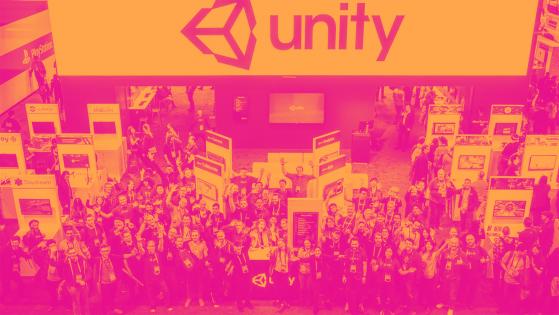What Happened: Shares of game engine maker Unity (NYSE:U) jumped 8.25% in the pre-market session after the announcement that John Riccitiello, the President, Chief Executive Officer, Chairman, and Board member, will retire immediately. James M. Whitehurst has been appointed as the Interim Chief Executive Officer, President, and a member of the Board. Roelof Botha, Lead Independent Director of the Unity Board, has been named Chairman. At the same time, Unity will initiate a search for a permanent CEO. Unity also reaffirmed its third-quarter 2023 guidance.
Reaffirming previous guidance is likely a source of relief.
As a reminder, Unity faced backlash from developers earlier in the year over a controversial pricing change. In September 2023, Unity announced that it would introduce a new fee called the "Unity Runtime Fee." This fee would be charged to developers based on the number of players who install their games. With this back and forth, many may have wondered how stable the underlying financials are. It seems that despite this upheaval, the company is on track, at least in the near term. After the initial pop the shares cooled down to $30.97, up 4.26% from previous close.
Is now the time to buy Unity? Find out by reading the original article on StockStory.
What is the market telling us: Unity's shares are very volatile and over the last year have had 65 moves greater than 5%. In context of that, today's move is indicating the market considers this news meaningful but not something that would fundamentally change its perception of the business.
The previous big move we wrote about was 27 days ago, when the stock dropped 7.34% on the news that the company introduced a controversial pricing change called the "Unity Runtime Fee". It was to be implemented on January 1, 2024. Under this new pricing plan, developers using Unity Engine (the Unity Editor and the Unity Runtime) are subject to additional charges for each player who installs their game. The change was not to be well received by many of its developers, and Unity has faced criticism. Developers criticizing it specify that clarification is needed about how the pricing change will affect their future budget, growth and potential profitability.
Unity responded to some of these concerns by stating that the plan will mostly impact developers with highly successful games that generate revenue above certain thresholds. The company argued that this approach is intended to support newer developers in growing their audience and finding success before being charged under the new plan.
As the backlash from developers, especially on social media, became more widespread, Unity made additional tweaks to the pricing plan. For example, it now expects to charge developers only when a user first installed a game and not on subsequent re-installs. This handles some concerns like "install bombing" where a user re-installs a game several times and potentially drives multiple charges. However, it also implies that the additional revenue and growth potential perhaps being modelled may not play out. This episode is also a reminder that the relationship between Unity and its developer community is a lifeblood to the company but can also sometimes be fraught.
Unity is up 15.1% since the beginning of the year, but at $30.97 per share it is still trading 36.2% below its 52-week high of $48.50 from July 2023. Investors who bought $1,000 worth of Unity's shares at the IPO in September 2020 would now be looking at an investment worth $453.40.
